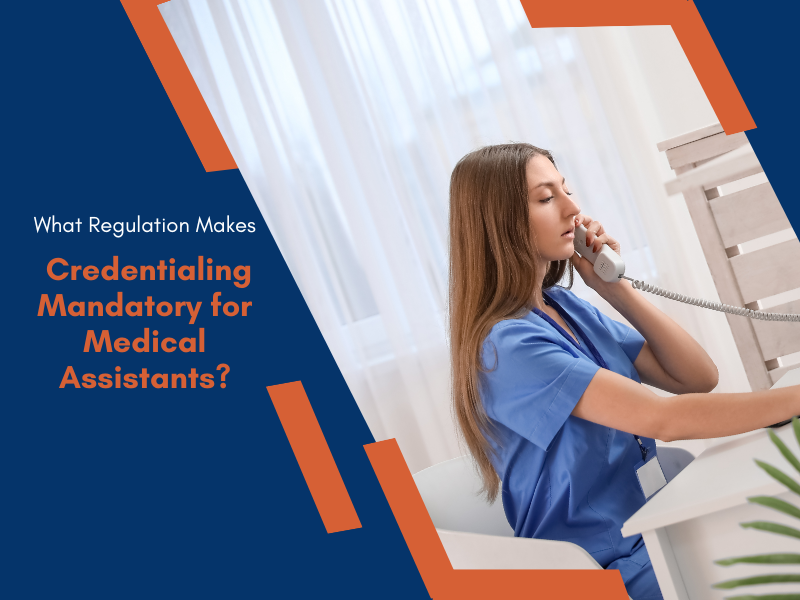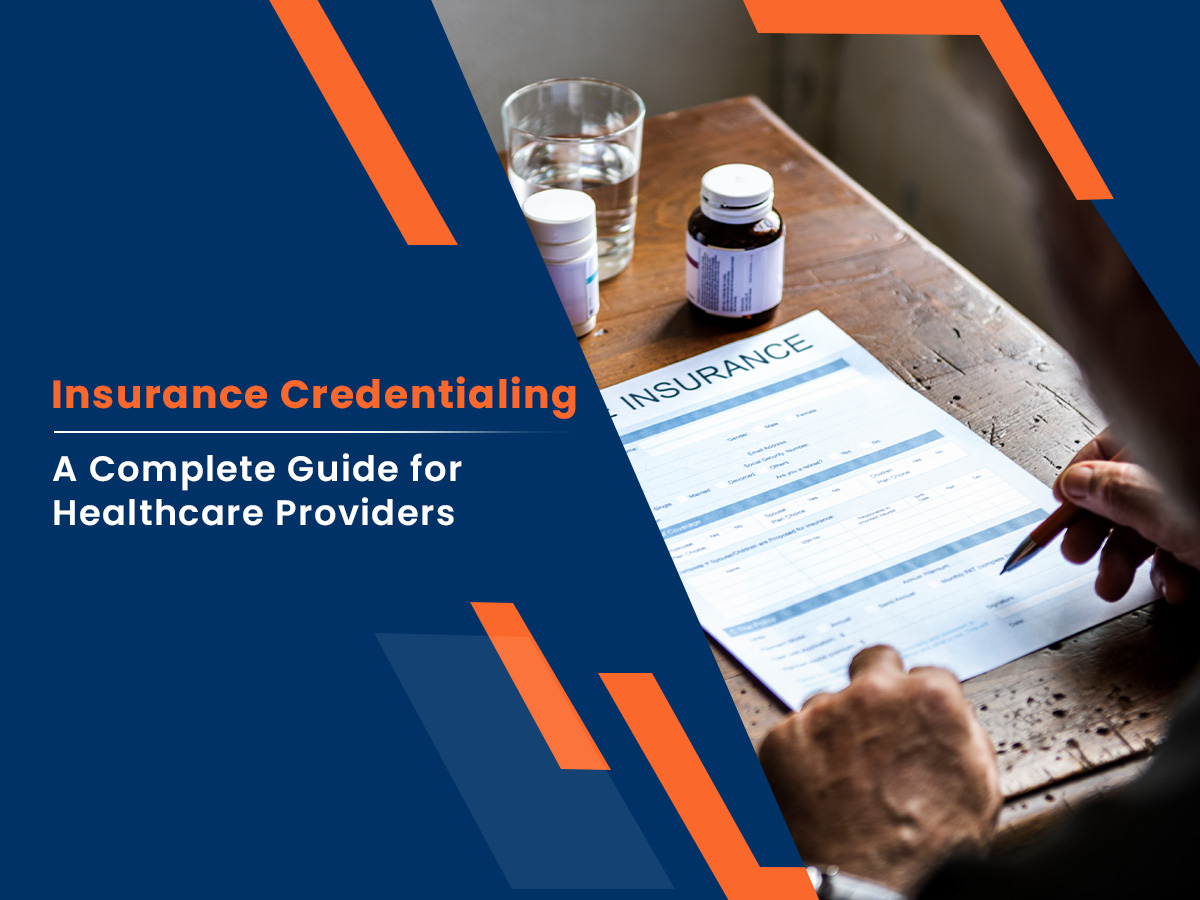In the healthcare world, medical assistants play a vital role by supporting physicians, managing patient information, and handling administrative duties. However, the responsibilities of medical assistants also come with specific regulatory requirements, especially around credentialing. Credentialing has become increasingly important to ensure the safety, accuracy, and professionalism required in healthcare settings. This blog will delve into what credentialing regulations apply to medical assistants and why it’s crucial for both the healthcare provider and the patients they serve.
Understanding Medical Assistant Credentialing
Before discussing the regulations that make credentialing mandatory, let’s explore what credentialing means for medical assistants. Credentialing involves verifying the qualifications, skills, training, and background of medical assistants to ensure they meet specific standards. It encompasses licensing, certifications, education, and sometimes experience, allowing employers to confirm that a medical assistant is capable and qualified for their role.
Credentialing is essential for maintaining high standards in healthcare facilities, enabling medical assistants to work with confidence, precision, and accountability. In short, credentialing is a way of safeguarding patients while ensuring healthcare teams meet rigorous professional standards.
Key Credentialing Certifications for Medical Assistants
Several certifications are available for medical assistants, including the Certified Medical Assistant (CMA) by the American Association of Medical Assistants (AAMA) and the Registered Medical Assistant (RMA) by American Medical Technologists (AMT). These credentials signify that a medical assistant has met certain educational and training standards.
These certifications are often a prerequisite for positions in top hospitals and healthcare facilities, making them an important asset for medical assistants seeking career growth. As a result, most states and healthcare institutions expect credentialing, making it nearly mandatory for individuals entering this field.
Regulatory Framework Making Credentialing Essential for Medical Assistants
Medical assistants, like other healthcare professionals, are required to adhere to a set of regulations to ensure patient safety and quality care. While credentialing may not be a federal law requirement, various state laws, accrediting agencies, and healthcare policies make it mandatory in practice.
Here are some critical regulations and guidelines that influence credentialing for medical assistants:
1. The Clinical Laboratory Improvement Amendments (CLIA)
The Clinical Laboratory Improvement Amendments (CLIA) are federal regulations aimed at ensuring the quality of laboratory testing. Medical assistants often handle laboratory tasks, such as collecting samples and performing basic tests. CLIA sets specific qualifications and competency requirements for those working in laboratories. Even though CLIA does not explicitly mandate credentialing for medical assistants, it requires healthcare facilities to employ competent individuals, leading employers to favor credentialed medical assistants.
2. Occupational Safety and Health Administration (OSHA) Regulations
OSHA’s primary concern is workplace safety, especially in high-risk environments such as healthcare settings. Medical assistants are exposed to biohazards, chemicals, and infectious diseases. Credentialing confirms a medical assistant’s knowledge of safety practices, infection control, and proper handling of medical equipment, making it an essential criterion for many healthcare facilities.
3. State-Specific Licensure and Certification Requirements
While some states have specific regulations for credentialing medical assistants, others do not. However, the growing complexity and high standards within the healthcare industry have pushed states to adopt or recommend credentialing as a mandatory practice. States like Washington and Arizona require certification for medical assistants to perform certain advanced duties.
In these states, medical assistants without certification are limited to basic tasks, such as clerical work and assisting with exams. This has led many healthcare facilities across the country to prefer or require credentialing, even in states where it isn’t technically mandated.
4. Healthcare Facility Accreditation Agencies
Agencies such as The Joint Commission (TJC) and the National Committee for Quality Assurance (NCQA) establish rigorous standards for healthcare facilities. These agencies evaluate healthcare providers on many factors, including the competence and qualifications of their staff. To meet these standards, facilities prefer hiring credentialed medical assistants to demonstrate their commitment to excellence and patient safety.
Healthcare organizations accredited by TJC or NCQA are often held to a higher standard, and hiring credentialed medical assistants helps these organizations meet compliance and quality requirements. This indirectly makes credentialing almost mandatory, as uncredentialed staff may result in non-compliance during accreditation reviews.
5. Centers for Medicare & Medicaid Services (CMS)
CMS, a federal agency that manages programs like Medicare and Medicaid, requires healthcare facilities to follow specific compliance rules. Although CMS does not mandate credentialing directly, healthcare providers must ensure that all staff involved in patient care meet competency standards. Medical assistants who lack appropriate credentials may be restricted from certain tasks under CMS guidelines, so many facilities seek credentialed staff to ensure full compliance.
Why Credentialing Matters for Medical Assistants
Credentialing isn’t just a regulatory formality; it has practical and professional significance for medical assistants. Here are some of the core benefits that credentialing offers:
- Enhances Credibility and Trust
Patients and other healthcare providers trust credentialed medical assistants more because they know these individuals have the skills to perform their duties safely and accurately. - Broadens Employment Opportunities
Many employers prefer or require credentialed medical assistants. Credentialing can be a deciding factor for employers looking for qualified candidates to join their team, especially in well-established facilities or specialized fields. - Ensures Better Compensation and Career Growth
Credentialed medical assistants are generally compensated better than those without certification. The qualifications give medical assistants a competitive edge, making them more eligible for promotions, specialized roles, and increased salaries. - Improves Quality of Patient Care
Credentialed medical assistants are better equipped to handle complex medical and administrative tasks. By adhering to rigorous training and certification standards, credentialed assistants are more proficient, leading to higher patient satisfaction and safety.
The Future of Credentialing for Medical Assistants
As healthcare continues to evolve, the importance of credentialing for medical assistants will likely increase. Trends indicate that more states may adopt certification requirements, pushing the industry toward universal standards for entry-level and advanced roles. With a steady increase in patient demands, complex healthcare regulations, and the expansion of responsibilities, credentialing will become a central component of the medical assistant profession.
Employers, patients, and industry leaders recognize credentialing as a valuable indicator of a medical assistant’s qualifications, knowledge, and dedication. Thus, for those entering or advancing in this field, obtaining the necessary certifications is crucial for long-term success.
Apaana Healthcare: Your Trusted Partner in Credentialing Solutions
When it comes to healthcare solutions, credentialing is a critical element for ensuring compliance and high standards. At Apaana Healthcare, we drive operational excellence with comprehensive healthcare management solutions, including medical billing, coding, and credentialing support. Our expertise covers all facets of healthcare administration, including member enrollment, claims administration, and provider engagement.
Apaana Healthcare specializes in outsourcing services tailored to health plans and medical practices, helping you achieve operational efficiency and cost savings. We prioritize credentialing because we understand the value it brings to both healthcare providers and patients. Trust Apaana Healthcare to streamline your healthcare operations, support your credentialing needs, and ensure regulatory compliance.
With Apaana Healthcare, you’re not only choosing excellence; you’re choosing a partner dedicated to helping you succeed.





